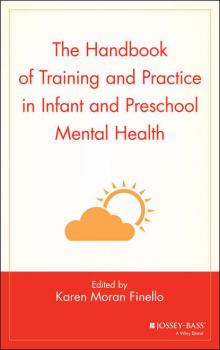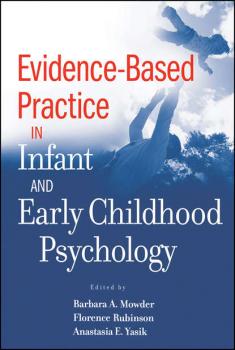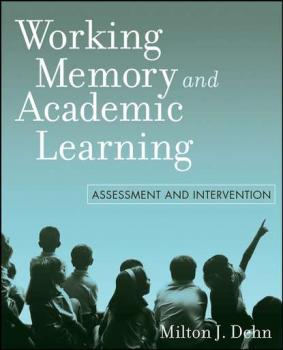Общая психология
Различные книги в жанре Общая психологияGlobal Approaches to Early Learning Research and Practice
The health, development, and learning of many young children living in disadvantage areas are at serious risk. Access to education has improved under the United Nations Millennium Development Goals, and there are now programs in low- and middle-income countries that are aimed at improving instruction and learning. The research and evaluation on the effectiveness of such programs show there are significant challenges, but also some successes. This issue features presentations of leading international scientists, representatives from key governmental and non-governmental organizations, and others working with programs in the developing world and disadvantaged populations. The presentations describe the goals, existing challenges, and potential approaches to providing evidence-based programs to young children in rural, remote, and poverty stricken areas. Topics covered include: the state of early childhood in low and middle income nations, programs that have shown some success, and innovative research approaches that have been often considered unfeasible in these contexts. This is the 158th volume in this Jossey-Bass series New Directions for Child and Adolescent Development. Its mission is to provide scientific and scholarly presentations on cutting edge issues and concepts in this subject area. Each volume focuses on a specific new direction or research topic and is edited by experts from that field.
The Handbook of Training and Practice in Infant and Preschool Mental Health
This comprehensive and highly useful guide offers students and practicing clinicians who work with infant and preschool populations a much-needed resource for developing and honing their professional skills and clinical experiences. The book contains vital information about general training issues and highlights the skills that are needed to be considered a competent professional. Written by top experts in the field from a wide range of disciplines, the authors address basic areas of training and practice with very young children, including observation, assessment, diagnosis, dyadic therapy, and reflective supervision, in addition to unique areas of clinical work such as reunification and adoption evaluations. The book also offers examples of innovative models of training and practice for the delivery of services in nontraditional settings such as homes, day care centers, and preschools, and special strategies for delivering clinical services and providing supervision in rural and remote settings, including the use of technology.
Blackwell Handbook of Infant Development
This up-to-date overview of the fast-moving field of infant development covers all the major areas of interest in terms of research, applications and policy. Provides an up-to-date overview of progress on important developmental questions relating to infancy. Balances North American and European perspective. Written by leading international researchers. Now available in full text online via xreferplus, the award-winning reference library on the web from xrefer. For more information, visit www.xreferplus.com
Information Processing Biases and Anxiety
With contributions from a global team of experts this book provides a comprehensive overview of information processing biases in children and adolescents. The first book to provide readers with an understanding of anxiety and the role of information processing biases more broadly in the context of developmental psychopathology Demonstrates how researchers have explored diverse aspects of information processing in anxious children and adolescents Draws on the microparadigms used in the study of development and psychopathology to consider issues related to heritability, temperament, learning and parenting Considers preventative methods and treatment protocols
Evidence-Based Practice in Infant and Early Childhood Psychology
An authoritative guide to evidence-based treatment of infants and young children Evidence-Based Practice in Infant and Early Childhood Psychology is the first handbook of its kind to consider the complete psychological needs of infants and young children, from birth to early childhood. With a focus on evidence-based practice, the book provides a balanced perspective of diverse and ethical practice with research and educational recommendations interwoven throughout. Comprehensive in scope, Evidence-Based Practice in Infant and Early Childhood Psychology is divided into four sections: Foundations provides the framework for considering psychological and educational service provisions for young children and their families Assessment and Intervention includes chapters on assessing infants, toddlers, preschoolers, parents and families, and bilingual and multicultural children Evidence-Based Practice addresses evidence-based treatmentsfor particular issues such as autism, ADHD, health impairments, and more Contemporary Issues examines current perspectives on issues such as childcare, neuropsychology, Response to Intervention (RTI) and violence prevention
Working Memory and Academic Learning
Equipping school and child psychologists, and neuropsychologists with critical information on the role of working memory in learning and achievement, Working Memory and Academic Learning offers guidance on assessment tools, interventions, and current evidence-based best practices. Its specific, step-by-step guidance and hands-on case studies enables you to identify how working memory relates to academic attainment and how to apply this knowledge in professional practice.
Social Psychological Foundations of Health and Illness
Social Psychological Foundations of Health and Illness is a summary of current research in social-health psychology. The chapters, written by distinguished leaders in the field, provide brief surveys of classic developments in each area of study followed by extended discussion of the authors’ research programs. Includes state-of-the-art descriptions of new findings and theories concerning social aspects of physical health and illness. Discusses virtually all of the major topics studied in the contemporary field of social-health psychology. Contains chapters written by leading figures in the field that discuss their own research within the context of classic efforts.
The Handbook of Victim Offender Mediation
Written by Mark Umbreit, internationally known for his work in restorative justice, this indispensable resource offers an empirically grounded, state-of-the-art analysis of the application and impact of victim offender mediation, a movement that has spread throughout North America and abroad. The Handbook of Victim Offender Mediation provides practical guidance and resources for offering victim meditation in property crimes, in minor assaults, and, more recently, with crimes of severe violence, including with family members of murder victims who request to meet the offender.
The Handbook of Evolutionary Psychology
The foundations of practice and the most recent discoveries in theintriguing newfield of evolutionary psychology Why is the mind designed the way it is? How does input from the environment interact with the mind to produce behavior? By taking aim at such questions, the science of evolutionary psychology has emerged as a vibrant new discipline producing groundbreaking insights. In The Handbook of Evolutionary Psychology, leading contributors discuss the foundations of the field as well as recent discoveries currently shaping this burgeoning area of psychology. Guided by an editorial board made up of such luminaries as Leda Cosmides, John Tooby, Don Symons, Steve Pinker, Martin Daly, Margo Wilson, and Helena Cronin, the text's chapters delve into a comprehensive range of topics, covering the full range of the discipline: Foundations of evolutionary psychology Survival Mating Parenting and kinship Group living Interfaces with traditional disciplines of evolutionary psychology And interfaces across disciplines. In addition to an in-depth survey of the theory and practice of evolutionary psychology, the text also features an enlightening discussion of this discipline in the context of the law, medicine, and culture. An Afterword by Richard Dawkins provides some final thoughts from the renowned writer and exponent of evolutionary theory. Designed to set the standard for handbooks in the field, The Handbook of Evolutionary Psychology is an indispensable reference tool for every evolutionary psychologist and student.
Applying Psychology to Everyday Life
This text gives a general introduction to the subject but in a way that demonstrates its applicability to their work and to everyday life, whilst remaining academically grounded. It demonstrates how psychology can make a practical difference in the ‘real world’. Topics covered include emotions, motivation, social life and the lifespan. Basic, up-to-date introduction to psychological concepts Practical exercises and techniques Scene setting examples from real life









